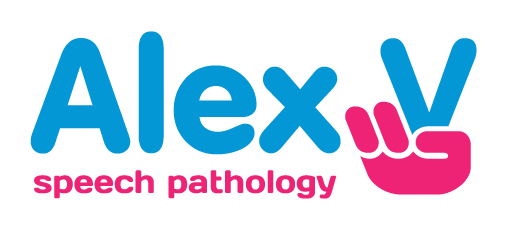Alex V. Speech Pathology is actively involved in helping children with language delay disorders in Brisbane and Ipswich.
Language therapy will help your child follow instructions and express themselves clearly at school.
Language is one of the most important parts of our life, and one of the first things we learn. We use language to communicate with others, to express ourselves, to read and write, and it allows us to continue to learn.
Therefore, making sure your child has sufficient language skills is extremely important to allow them to develop at the same rate as their peers. With effective language therapy treatment, your child will flourish in school and in their social life; being able to make friends, perform well academically, comprehend teacher’s instructions and feedback, and performing presentations.
Lacking the ability to do these things with confidence can be detrimental to your child’s confidence, sometimes causing behaviour issues as a result of frustration. Therefore, language treatment can be effective in fixing other issues your child may have. While it can be difficult to determine whether your child simply has a language delay or has a genuine language disorder, it’s important to bring your child to Alex V. Speech Pathology as soon as you notice any issues with their language, as early detection is always the key to the most effective treatment.
Language Delay Vs. Language Disorder
All children learn language at different rates depending on a variety of factors. However, when a child misses numerous language milestones, they are often regarded as having a language delay.
This may include children who have difficulty saying or learning first words, putting words together to form sentences, building vocabulary and/or understanding words or sentences.
Language delays are often associated with disorders such as autism, down syndrome, hearing impairment, kabuki syndrome etc. When a language delay persists for a long period of time, it is often then referred to as a language disorder; and a language disorder is characterised by significant delays in learning to talk and understand language.
The Fundamentals of Language Therapy
Language therapy can be broken into two parts: expressive language and receptive language.
Expressive language refers to how your child uses their words to express themselves, whereas receptive language is the ability to understand and comprehend the spoken word.
Language can be broken up into three different parts: syntax, semantics and pragmatics. It’s important to note that language does not refer to how accurately a child is able to produce sounds, but rather how well they can use and understand words, grammar, sentence structure etc.
Syntax
Syntax refers to the ability to use grammar correctly in the English language, including:
- Plurals
- Past/present/future tense
- Conjunctions
- Being able to construct sentances in a grammatical way
- Using conjunctions
Semantics
Semantics refers to the ability to have a useful vocabulary that is stored correctly in your brain. For instance, knowing which words are associated with each other such as ‘Tiger’ and ‘Animal’ or ‘Apple’ and ‘Orange’. If your child doesn’t have a good vocabulary, they will struggle with being able to speak fluently.
Pragmatics
Finally, pragmatics is the way in which we use our language; such as conversational skills including topic maintenance, how to take turns in a conversation, maintaining eye contact and more.
How do I know my child needs Language Therapy?
Determining whether or not your child needs language therapy can be difficult, especially when all children develop at different rates. However, the number one piece of advice we offer at Alex V. Speech Pathology is to bring your child in for a consultation if you have any doubts about their language abilities.
This way, we can treat the issue early on or if they don’t have a language issue they will usually just be a late developer. In light of this, some of the tell-tale signs that your child may need language therapy are:
- Your child has difficulty following more complex instructions e.g. they can follow “go get your shoes” but don’t understand “go get your shoes, hat and your lunchbox”
- Your child struggles to express themselves; for example, recalling the events of their day
- Your child sounds “babyish” compared to their peers
- Their teacher flags their concerns with you
At Alex V. Speech Pathology, we understand that it can be difficult to bring your child in for a check-up, especially if you’re following the advice of someone else. However, it is vital to bring your child in for a consultation as soon as possible to either rule out or treat a language disorder.

Language Therapy at Alex V Speech Pathology
As paediatric speech and language pathologists, Alex V. Speech Pathology focus on making treatments something that children enjoy coming to. We use fun games throughout our sessions, taking into consideration your child’s interests and milestones.
Our clinic is colourful, warm and as non “clinical” as we can make it, helping your child feel at ease from the moment they walk through the door. Our team love getting to know you and your child and building an authentic relationship, which we believe makes for more successful therapy.
Our speech pathologists use evidence-based therapy and trusted standardised testing to ensure an accurate diagnosis and effective treatment.

